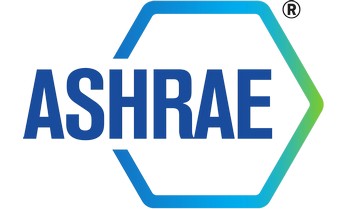ASHRAE committee chair expects ‘2025 or later’ for approval of higher R290 charge for heat pumps in U.S.
March 22, 2024

It will most likely not be until “2025 or later” before an ASHRAE standards committee approves the use of up to 4.9kg (10.9lbs) of flammable (A3) refrigerants like propane (R290) in outdoor (indirect) heat pumps and air conditioners in the U.S., according to the committee’s chair.
“This is not going to be a quick process,” said Jim VerShaw, chair of ASHRAE’s SSPC (Standing Standard Project Committee) 15.2 and Chief Engineer, Residential HVAC for Trane Technologies. SPCC 15.2 oversees ASHRAE’s 15.2-2022 Safety Standard for Refrigeration Systems in Residential Applications. The proposed amendment to increase in the charge limit for A3 and A2 (less flammable) refrigerants falls under “Addendum E.”
The Proposed Addendum E, in an advisory public review draft, completed a 45-day public review period on September 18, 2023. If approved by ASHRAE, the charge limit would also need to be endorsed by UL under its 60335-2-40 standard, and then by the U.S. Environmental Protection Agency (EPA). Existing regulation in the U.S. only permits 114g (0.3lb) of propane in fixed or non-fixed heat pump and AC units (including outdoors).
On January 21, SPCC 15.2 met in Chicago prior to the start of the AHR Expo 2024 and did a “public review” of Addendum E, said VerShaw. It was decided that studies and tests on indirect HVAC systems using these refrigerants were needed to support an increase in charge. The Committee formed a working group, which developed a “work statement” to do computational fluid dynamics and verification testing with Xudong Wang, Vice President of Research at the Air-Conditioning, Heating and Refrigeration Institute (AHRI), leading that effort.
At an online meeting of SPCC 15.2 on March 1, the work statement was approved, and Wang said he would seek funding for the research, which he expects to start this summer. The Work Group will also be studying the European market, where residential outdoor heat pumps using 4.9kg of R290 are already provided by a number of companies.
Support from EIA
Last year, the Washington, D.C., branch of the Environmental Investigation Agency (EIA) said it strongly supported approval of the proposed Addendum E. “This proposal provides for the safe installation and use of ultra-low global warming potential refrigerants such as propane and other hydrocarbons in indirect outdoor systems,” wrote Christina Starr, Senior Manager, EIA-US, in comments submitted to ASHRAE.
The EIA is behind the harmonization of U.S. safety standards and building codes with other international equivalents that already enable safe use of A3 refrigerants in similar outdoor equipment. Current international standards and codes in place globally, including IEC 60335-2-40, allow up to a 4.9kg-charge size of A3 refrigerant outdoors. “Updates to ASHRAE 15.2 and UL 60335-2-40 must be prioritized to bring the U.S. market into step with the cost-effective and ecofriendly technologies being adopted throughout Europe and other regions globally,” Starr wrote.
Starr noted that the proposed 4.9kg-charge limit applies to outdoor indirect systems, such as air-to-water (monobloc) heat pumps. In these systems, “the refrigerant remains outdoors and is installed to avoid any possible nearby ventilation or other openings to the occupied space in order to ensure a flammable refrigerant does not enter the occupied space in the event of a leak.”
At the ATMOsphere America conference in June 2023, Starr urged HVAC&R stakeholders in the U.S. to get engaged in the process of setting national standards and codes for expanding the use of hydrocarbons in air-conditioning and heat pumps.


